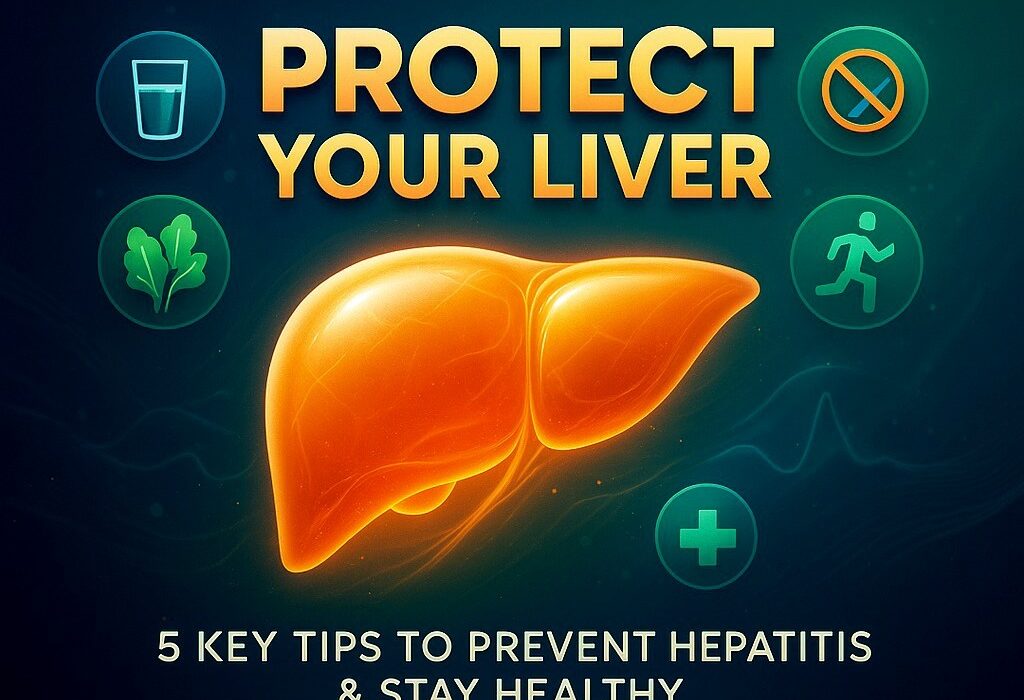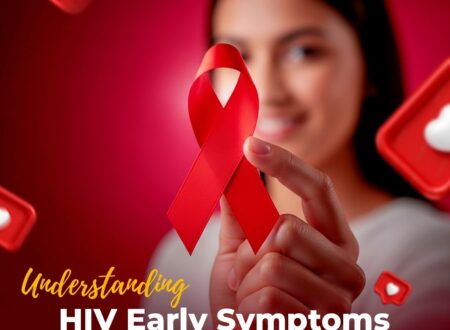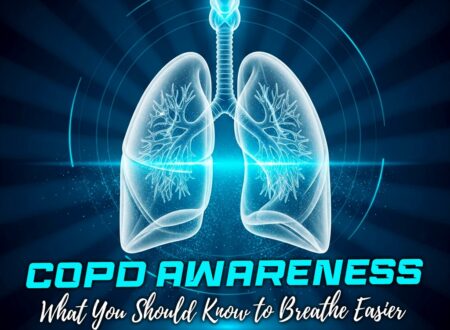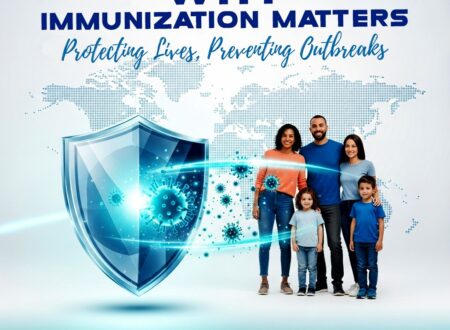The liver is often called the body’s silent powerhouse. From detoxifying harmful substances to aiding digestion and storing energy, the liver performs over 500 critical functions every day. Yet, many people don’t think about their liver health until something goes wrong. Among the most common threats to the liver is hepatitis— an inflammation that can lead to serious conditions like liver failure, cirrhosis, or even liver cancer if left unchecked.
The good news is that hepatitis and other liver-related diseases are largely preventable. By adopting healthy habits and staying informed, you can safeguard your liver and ensure it serves you well throughout your life.
What Is the Liver and Why Is It So Important?
The liver is the largest internal organ in the human body, and it quietly performs hundreds of life-sustaining tasks every single day. Located in the upper right side of your abdomen, just beneath the diaphragm, the liver weighs about 1.5 kilograms in adults and is often described as the body’s “chemical factory.”
But calling it just a factory doesn’t do it justice—the liver is a multitasking powerhouse. In fact, it carries out more than 500 vital functions that keep you alive and healthy. Let’s take a closer look at some of its most important roles:
-
Metabolism and Energy Management:
One of the liver’s key jobs is to help process and manage the nutrients you get from food.
- It converts carbohydrates into glucose, the body’s primary source of energy.
- When there’s more glucose than your body needs, the liver stores it as glycogen, releasing it later when your energy levels drop.
- It also helps in breaking down fats and proteins, ensuring your body has the right balance of nutrients for fuel, repair, and growth.
-
Detoxification and Waste Removal:
Think of your liver as your body’s natural filter. Every day, it processes toxins from food, medications, alcohol, and even your own metabolism. It:
- Breaks down harmful substances into safer compounds.
- Removes waste from the blood and sends it out of the body via bile or urine.
This is why liver health is so crucial—when the liver struggles, toxins can build up and cause serious harm.
-
Bile Production for Digestion:
The liver produces bile, a digestive fluid that’s essential for breaking down fats. Bile also helps your body absorb fat-soluble vitamins like A, D, E, and K—nutrients that are critical for vision, bone health, immunity, and blood clotting.
Without bile, digestion wouldn’t work properly, and your body would miss out on key nutrients.
-
Blood Clotting and Wound Healing:
Another important job of the liver is making clotting factors—special proteins that help stop bleeding when you get injured.
Without a healthy liver, even minor cuts could become dangerous because your blood might not clot properly.
-
Storing Essential Nutrients:
The liver also serves as a storage center for the body. It keeps reserves of:
- Iron and copper, which are needed for healthy blood and various cellular processes.
- Vitamins A, D, E, and K, which are released as needed to support overall health.
This storage function ensures your body always has a backup supply of critical nutrients.
-
Supporting Your Immune System:
Few people realize that the liver is also part of the immune system.
It helps protect the body by filtering bacteria and toxins from the blood. This makes it a front-line defender against infections and illness.
Common Liver Problems and Conditions: What You Should Know
The liver is one of the most resilient organs in the human body. It works silently, regenerates damaged tissue, and performs hundreds of essential tasks every day. But even this hardworking organ has its limits.
Liver problems often develop quietly, showing few or no symptoms until the damage is already advanced. That’s why early awareness and prevention are key when it comes to protecting liver health.
Here’s a closer look at some of the most common liver problems and conditions you should be aware of:
1. Fatty Liver Disease (NAFLD and AFLD):
Fatty liver disease happens when too much fat accumulates in liver cells. This condition is becoming increasingly common worldwide due to changes in diet and lifestyle.
- Non-Alcoholic Fatty Liver Disease (NAFLD) is linked to obesity, diabetes, high cholesterol, and a sedentary lifestyle. It’s often called a “silent disease” because most people don’t realize they have it until it progresses.
- Alcoholic Fatty Liver Disease (AFLD) occurs in people who drink large amounts of alcohol over time. Alcohol damages liver cells, leading to fat build up and eventually more serious problems.
Both forms of fatty liver can progress to inflammation, scarring, and in some cases, liver failure if not addressed early.
2. Hepatitis (A, B, and C):
Hepatitis refers to inflammation of the liver, most commonly caused by viral infections.
- Hepatitis A is usually spread through contaminated food or water. It’s often mild and doesn’t cause long-term liver damage.
- Hepatitis B and C, on the other hand, can become chronic infections. Left untreated, they can cause serious complications like cirrhosis (scarring of the liver), liver failure, or liver cancer.
Vaccines are available for hepatitis A and B, but unfortunately, no vaccine exists yet for hepatitis C. That’s why prevention, screening, and early treatment are so important.
3. Cirrhosis:
Cirrhosis is the result of long-term, continuous liver damage. Over time, healthy liver tissue is replaced by scar tissue, which limits the liver’s ability to function.
Common causes of cirrhosis include:
- Chronic alcohol abuse
- Long-term viral hepatitis B or C infection
- Fatty liver disease that has progressed
Cirrhosis can lead to liver failure, internal bleeding, swelling of the abdomen (ascites), and a higher risk of liver cancer.
4. Liver Cancer:
The most common type of liver cancer is called hepatocellular carcinoma (HCC). It usually develops in people who already have chronic liver disease, especially those with hepatitis B, hepatitis C, or cirrhosis.
Liver cancer often doesn’t cause symptoms in the early stages. When symptoms do appear, they may include weight loss, jaundice (yellowing of the skin and eyes), abdominal pain, or swelling. Early detection through screening can greatly improve survival rates.
5. Genetic Liver Disorders (Hemochromatosis and Wilson ’s disease):
Some liver conditions are inherited. Two of the most well-known are:
- Hemochromatosis: A disorder where the body stores too much iron, leading to liver damage.
- Wilson ’s disease: A rare condition that causes copper build up in the liver and other organs.
Both conditions can cause serious complications if not diagnosed early. Regular screenings are essential, especially if there’s a family history. Liver failure happens when the liver loses its ability to perform its vital functions. This can be either:
- Acute (sudden onset), often due to poisoning, drug overdose (such as excessive paracetamol use), or severe infections.
- Chronic (gradual damage over time), usually due to long-term liver diseases like cirrhosis or hepatitis.
Liver failure is life-threatening and may require urgent treatment or even a liver transplant.
Why Liver Health Matters:
The liver may be a quiet organ, but when it fails, the consequences can be severe. Many liver conditions develop gradually, with little to no warning signs in the early stages. That’s why regular health check-ups, vaccinations, healthy lifestyle choices, and awareness of risk factors are so important.
By understanding common liver problems, you can take proactive steps to protect your health and catch issues before they become life-threatening.
Here are 5 key tips to prevent hepatitis and maintain optimal liver health:
1. Get Vaccinated Against Hepatitis A and B:
One of the most effective ways to prevent viral hepatitis is through vaccination. Hepatitis A and B are both preventable with safe and widely available vaccines.
- Hepatitis A is often transmitted through contaminated food or water. A two-dose vaccine provides long-term protection.
- Hepatitis B spreads through blood, sexual contact, and from mother to child during birth. The hepatitis B vaccine is usually given in three doses and is part of most national immunization programs, especially for new borns.
Unfortunately, there is no vaccine for hepatitis C yet, making prevention through safe practices even more essential.
2. Practice Safe Hygiene and Food Habits:
Hepatitis A and E are usually transmitted through contaminated food and water. Preventing these infections is often as simple as maintaining proper hygiene:
- Wash hands regularly, especially before eating and after using the restroom.
- Drink clean, safe water—boil or filter if necessary.
- Be cautious with street food and ensure food is cooked thoroughly.
- Avoid consuming raw or undercooked shellfish, as they can harbor hepatitis viruses.
These habits reduce your risk of not only hepatitis but also other digestive infections.
3. Avoid Sharing Personal Items and Practice Safe Injections:
Hepatitis B and C are blood borne viruses. They can spread through:
- Sharing needles, razors, toothbrushes, or nail clippers.
- Unsafe tattooing or piercing procedures.
- Unscreened blood transfusions.
To protect yourself:
- Never share needles or sharp personal items.
- Ensure sterile medical practices are followed during injections, surgeries, or dental treatments.
- Choose licensed professionals for tattoos, piercings, and cosmetic procedures.
If you are a healthcare worker or frequently exposed to blood, follow standard infection control practices.
4. Maintain a Healthy Lifestyle and Limit Alcohol Consumption:
A healthy liver thrives on a healthy lifestyle. Excessive alcohol intake can cause fatty liver disease, hepatitis, and cirrhosis. Alcohol is also known to worsen the effects of viral hepatitis.
- Limit or avoid alcohol—especially if you have any existing liver condition.
- Maintain a balanced diet rich in fruits, vegetables, lean protein, and whole grains.
- Exercise regularly to maintain a healthy weight, as obesity increases the risk of non-alcoholic fatty liver disease (NAFLD).
- Avoid unnecessary medications or over-the-counter drugs that can strain the liver, particularly if taken in excess.
Your liver is your body’s detox center—don’t overload it.
5. Get Regular Screening and Liver Health Check-Ups:
Hepatitis, especially B and C, can remain silent for years without showing any symptoms until the damage is severe. That’s why regular screening is crucial, particularly if you:
- Have a family history of liver disease.
- Have risk factors like diabetes, obesity, or a history of blood transfusions before 1992.
- Engage in activities with a risk of blood contact or unprotected sex.
Simple blood tests can check for hepatitis viruses and monitor liver function. Early detection allows for better management and can prevent long-term complications.
In Closing: Listen to Your Liver
Your liver works hard for you every day, often without a single complaint. It’s time we return the favor. By getting vaccinated, practicing good hygiene, avoiding risky behaviors, living a healthy lifestyle, and going for regular check-ups, you can protect yourself from hepatitis and keep your liver functioning at its best.
Remember, your liver doesn’t just keep you alive—it keeps you thriving.
So take care of it, starting today.






